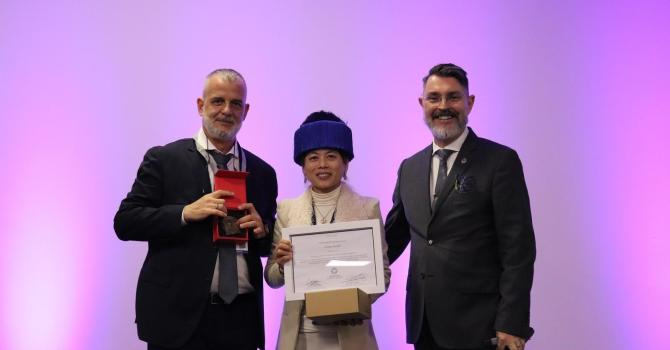Prof Joseph Lee Elected President of IAHR
Prof. Joseph Hun-wei LEE (李行偉), Visiting Professor of CIVL, has been elected President of the International Association for Hydro-Environment Engineering and Research (IAHR). He will be the first Chinese scholar to head the IAHR in its over eight decades of history.
Prof. Lee thinks this presidential election reflects the global recognition of the achievements of China (including the Hong Kong SAR) in water engineering especially in the past two decades. And as the next leader of the IAHR, he looks forward to utilizing the intellectual strengths of the IAHR global network to promote and further enhance inter-disciplinary and cross-platform collaboration to address global water challenges. He believes such collaboration will further help bridge the Greater Bay Area, China, and the rest of the world, particularly in sharing and exchanging water-related strategic thinking, research and practice, knowledge products, resources and technologies.
Prof. Lee currently serves as Senior Advisor to the President and Chair Professor of the Guangzhou Fok Ying Tung Research Institute of HKUST. He is past Vice President of HKUST and HKU, and a Fellow of the Royal Academy of Engineering and the Hong Kong Academy of Engineering Sciences. He has served as consultant to numerous hydro-environmental engineering projects, and on many national and international committees. His research, which revolves around the use of hydraulics to solve environmental problems, in particular the prediction and control of water quality, has won numerous awards.
Founded in 1935 in the Netherlands, the IAHR is a global, independent member-based organization of engineers and water specialists who work in hydro-environmental sciences and engineering, including river and maritime hydraulics, water resources development and eco-hydraulics, ice engineering, hydro-informatics, and hydraulic machinery. With secretariat offices in Madrid, Spain and Beijing, China, the IAHR is among the world’s oldest of such associations and has significant worldwide reach and impact.



